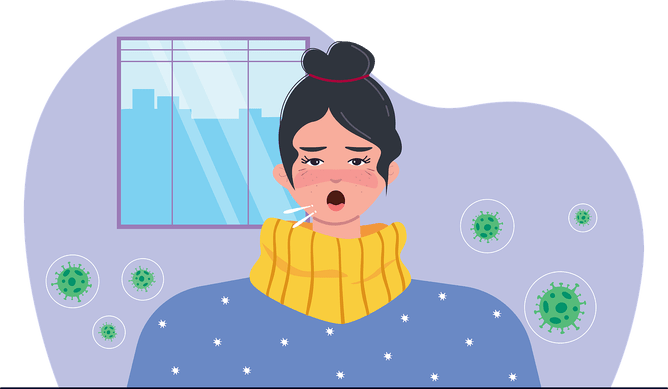Te Whatu Ora reports there were 187 confirmed, probable, and suspected cases of whooping cough (pertussis) across the motu in the month of September
This number is enough to indicate a national outbreak is likely to occur and that the risk of this is high. Cases of whooping cough are currently occurring in all regions and across a range of age groups and ethnicities.
What is whooping cough?
Whooping cough, or pertussis, is a very infectious illness that can cause severe bouts of coughing and breathing troubles. It is sometimes called the "100 day cough" because it can last up to 3 months. You can pass whooping cough on to others before you even know you've got it. Pēpi (babies), tamariki (children), and the elderly are at particular risk of complications from whooping cough. In severe cases, whooping cough can lead to pneumonia, paralysis, brain damage, and other health concerns, or even death.
What are the symptoms of whooping cough?
The early symptoms of whooping cough can be similar to a common cold:
Blocked or runny nose
Sneezing
Mild fever
Ongoing spasms of cough
After about 1 week, you may develop:
Coughing that leads to vomiting
Uncontrollable coughing fits
A thick mucus that can make you vomit or choke
You may also experience:
Breathing difficulties
Severe coughing fits
A "whoop" sound when gasping for breath between coughs
It's important to remember that the "whoop" sound that whooping cough is named after may or may not be heard, and to be careful about any of the other symptoms listed above.
Be vigilant about severe or life-threatening symptoms: see more below.
How can I protect myself and my whānau against whooping cough?
The best protection for yourself and your whānau is staying up to date on your whooping cough vaccinations. Boostrix is the whooping cough vaccine available in Aotearoa NZ, and it also protects against tetanus and diphtheria.
Pregnant people: a free whooping cough booster vaccination is recommended in every pregnancy from 16 weeks. Vaccination during pregnancy enables antibodies to pass to your pēpi via the placenta, giving your pēpi protection for their first few months of life.
Whānau of pregnant people: if you're spending time around a pregnant person or pēpi, check with your nurse or doctor about when you last received a whooping cough vaccination and whether a booster is recommended.
Pēpi and tamariki: whooping cough vaccinations are free for all babies and children at ages 6 weeks, 3 months, 5 months, 4 years, and 11 years. It's important that tamariki receive all five of these whooping cough vaccinations. If you think your tamaiti (child) has missed or is overdue a dose, please get in touch with us to check. Young people can receive free catch-up doses up to the age of 18 years.
45 and 65 year olds: at age 45 years you're eligible for a free whooping cough booster if you've received less than four tetanus doses in your life time (the tetanus vaccine, Boostrix, also vaccinates against whooping cough and diphtheria); from age 65 years you're eligible for a free whooping cough booster if it's been more than 10 years since your last tetanus vaccination (the tetanus vaccine, Boostrix, also vaccinates against whooping cough and diphtheria).
If you're not eligible for a free whooping cough vaccine, you can pay to receive one. The cost to receive one here is currently $90.00 total ($47.00 for the nurse injection fee, $43.00 for the vaccine).
What do I do if I think myself or someone in my whānau could have whooping cough?
If your or your whānau's symptoms are severe or life-threatening, call 111 immediately.
Severe or life-threatening symptoms include difficulty breathing, turning blue from coughing, long periods of coughing that end in vomiting, being very ill, and stopping breathing.
Be extra vigilant with young pēpi/babies, whose severe symptoms may not be obvious. About 50% of pēpi who catch whooping cough before 12 months require hospitalisation, and whooping cough can be particularly life-threatening to them.
If your or your whānau's symptoms are not severe or life-threatening...
Call us (or, if your family member is enrolled elsewhere, call their medical centre). All of our patients with any respiratory symptoms are triaged over the phone by one of our nurses before any appointments are booked. One of our nurses will discuss your symptoms and then advise you on the next steps.
If it is a weekend, contact your nearest After Hours clinic. They will have a process for safely managing respiratory illnesses.

